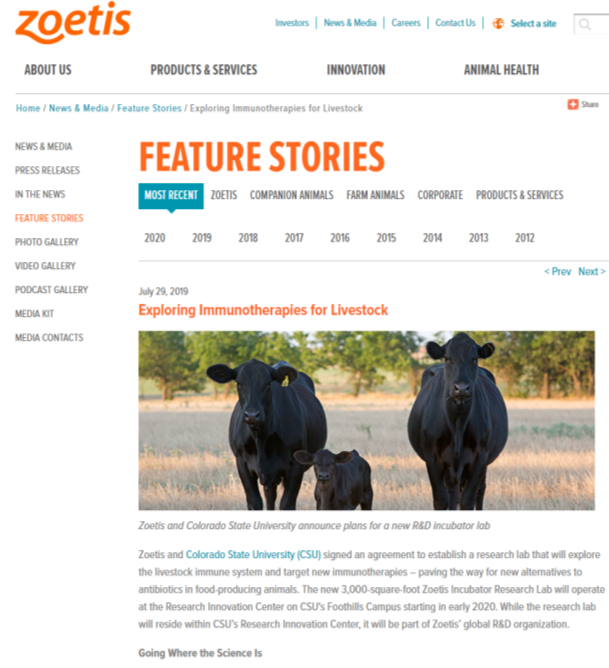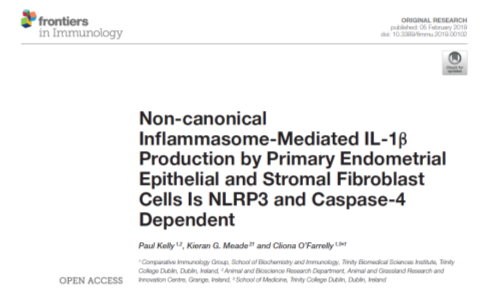Immunotherapies: Treatment of disease by inducing, enhancing, or suppressing an immune response
Immunotherapies are something people would more readily associate with control of human infectious diseases. However, pressure will readily increase to use new targeted therapies in livestock to meet the growing demand for food globally as well as from an animal welfare and environmental sustainability point of view.
Immunotherapies specifically target the host immune response, and so are different from current antibiotic and anthelmintic (pathogen-based approaches to disease. The best known example of an immunotherapy would be a vaccine. Although the field of immunotherapeutics extends well beyond vaccines, increased understanding of the power of the host immune system will also importantly improve vaccine design, delivery routes and mechanisms as well as the measurement of successful protection in individuals.
Although in its infancy compared to the human field, the advent of immunotherapies in livestock provides exciting opportunities to build on successful treatment approaches in humans (e.g. anti-inflammatories). The successful application of immunotherapies in livestock requires more detailed understanding of the immune response (and therefore provides exciting opportunities to expand our scientific knowledge). another example are immune checkpoint inhibitors being researched for use in cows - see link here.
There is an urgent need now to understand the mechanisms by which current vaccines work from an EU regulatory standpoint. The understanding of the mode of action for new immunotherapies are even more important in livestock as these animals will ultimately enter the food chain.
Precision health management implies a more tailored approach to livestock health and immunotherapies provide opportunities to move to a more proactive approach to disease prevention that may complement or replace current disease treatment methods.
This area offers enormous scope for research and career development for both animal and veterinary science graduates across all livestock species. The potential present in this space is reflected in the recent agreement between Zoetis and Colorado State University (CSU) to establish a research lab that will explore the livestock immune system and target new immunotherapies – paving the way for new alternatives to antibiotics in food-producing animals.
Our research has focused on some of the mechanisms involved in driving enhanced vaccine efficacy in cattle and from an immunotherapies perspective, we have identified small molecular inhibitors that target inflammation in cattle - see papers below.
Immunotherapies specifically target the host immune response, and so are different from current antibiotic and anthelmintic (pathogen-based approaches to disease. The best known example of an immunotherapy would be a vaccine. Although the field of immunotherapeutics extends well beyond vaccines, increased understanding of the power of the host immune system will also importantly improve vaccine design, delivery routes and mechanisms as well as the measurement of successful protection in individuals.
Although in its infancy compared to the human field, the advent of immunotherapies in livestock provides exciting opportunities to build on successful treatment approaches in humans (e.g. anti-inflammatories). The successful application of immunotherapies in livestock requires more detailed understanding of the immune response (and therefore provides exciting opportunities to expand our scientific knowledge). another example are immune checkpoint inhibitors being researched for use in cows - see link here.
There is an urgent need now to understand the mechanisms by which current vaccines work from an EU regulatory standpoint. The understanding of the mode of action for new immunotherapies are even more important in livestock as these animals will ultimately enter the food chain.
Precision health management implies a more tailored approach to livestock health and immunotherapies provide opportunities to move to a more proactive approach to disease prevention that may complement or replace current disease treatment methods.
This area offers enormous scope for research and career development for both animal and veterinary science graduates across all livestock species. The potential present in this space is reflected in the recent agreement between Zoetis and Colorado State University (CSU) to establish a research lab that will explore the livestock immune system and target new immunotherapies – paving the way for new alternatives to antibiotics in food-producing animals.
Our research has focused on some of the mechanisms involved in driving enhanced vaccine efficacy in cattle and from an immunotherapies perspective, we have identified small molecular inhibitors that target inflammation in cattle - see papers below.
Site powered by Weebly. Managed by Letshost.ie



